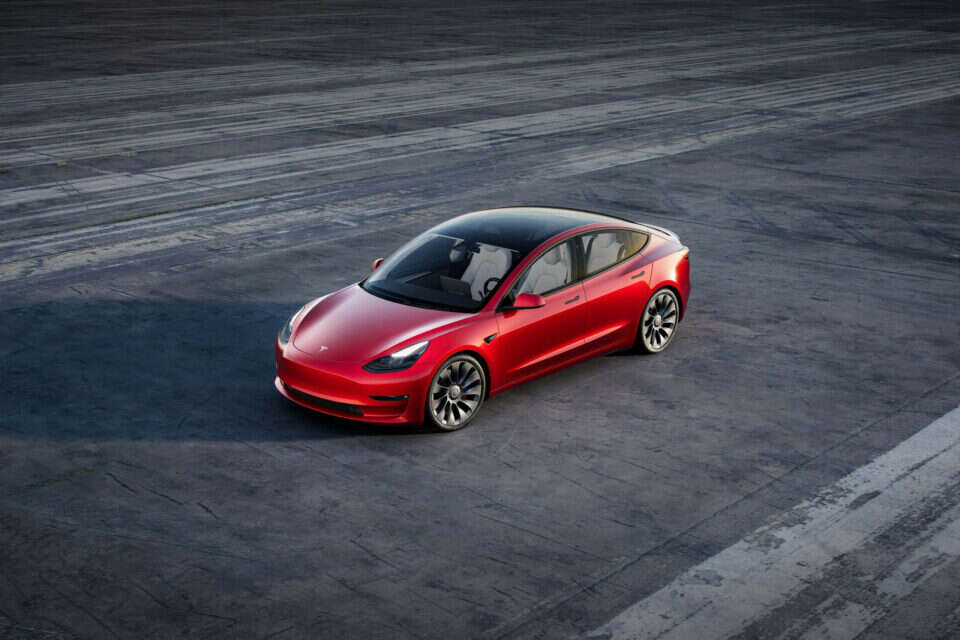Even before the sales for the month of December and the whole year are finalized, the picture of what happened here in the past year is already completely clear.
The previous month gives a hint of this, when a historic record was recorded in the sale of electric vehicles in Israel.
Three electric models, which are manufactured in China - BYD Auto 3, Tesla Model 3 and Geely Geometric C - placed at the top of sales.
In total, nearly 7,000 electric cars hit the roads in the previous month, making up about 30% of all deliveries.
This is an unusual figure that does not reflect the true state of the automotive industry, but certainly points to the general direction.
Huge shipments of electric models are already landing with us these days, in the hope of preempting the doubling of the tax on electric cars at the beginning of 2023.
A real flood
What began in the second half of 2021 as a trickle of Chinese car brands turned into a veritable flood this year, and now no less than 13 car brands from China are being marketed in Israel.
Geely stormed the market with the Geometric C model that conquered the streetcar market with more than 6,042 deliveries, overtaking MG, the pioneer of Chinese brands, which put 4,995 cars on the road this year, the overwhelming majority of them EHS plug-in models.
In September, BYD was also launched, with a promise to supply whatever quantity the local market would ask for, and delivered no less than 2,799 cars in two months.
In the past month, Chery, another car giant from China, was also launched, which chose to start its journey in the market with three gasoline-powered crossover models.
Back to the parade of Chinese trams - we find Eyeways with 996 deliveries and Skywall with 675 deliveries.
Hongchi proved that it is also able to sell here a Chinese vehicle that costs 500-400 thousand shekels and put 92 units on the road.
Not all Chinese women have had success here this year.
The JAC brand, which promised us 2,000 deliveries thanks to the cooperation with Alden, delivered only 168 cars.
In fact, China currently ranks fifth in the export of vehicles to Israel, after South Korea, Japan, the Czech Republic and Turkey.
Not bad considering that until three years ago she did not appear in this ranking at all.
This trend is only expected to get stronger, as in the coming year, models of additional Chinese brands are supposed to start being sold here.
Lipomotor has already started taking its first steps in the market with the T03, an electric city car for less than NIS 100,000.
Wei also landed with it, from the other side of the price worlds, with the Kofi 01 - a luxurious recreational vehicle with a hybrid drive system that allows a greater range than usual.
On the way to 20 Chinese car brands
At the very beginning of the year, another brand should start its journey in Israel, and it is Lync&Co, another electric vehicle from the Chinese company Geely, based on the technology and know-how of the Swedish Volvo and marketed in Israel by the Meir Group.
This is the second Chinese brand brought by the company, joining Polestar, whose marketing began in Israel recently.
In the first phase, the Link 01 model will be offered here - a family crossover that is similar to the Volvo XC40 and shares many common assemblies with it, but will benefit from a more attractive design, and will probably also be equipped with a lower price tag.
Immediately afterwards, EV Motors is expected to start marketing the electric vehicle brand of WM Motor, a relatively new car manufacturer in China that was founded in 2015 and among its prominent investors are Chinese technology giants such as Xiaomi, Baidu (the Chinese Google) and TenCent (the owner of the WeChat social network).
Marketing will begin with an electric family crossover called the W5, and the importer claims that its first 1,000 cars will enter the Port of Eilat as early as January.
In the first quarter of this year, Kelmovil is also expected to join the celebration with ORA, the popular electric vehicle brand of Great Wall Motors, which will begin its operations in Israel with the Funky-Cat model, an electric hatchback family with a retro design.
Metro Motor is adding another Chinese vehicle to its ranks, and it is Voyah, an electric luxury brand from Dongfeng, which will offer us the Free model, another recreational vehicle with a Maserati-style front and a price that is expected to be around NIS 400,000.
Another company on the way
The Belilios Group, importer of Aiways, is also expanding and plans to launch NETA here in the first half of 2023.
In this case, too, it is a young Chinese company with big ambitions, which sees the Israeli market as a testing ground that will help it penetrate Europe in the future, and the marketing in Israel will begin with three models that will be offered in the first phase.
If there are no surprises, something that has definitely characterized the car market since the appearance of the Corona virus three years ago, at least three Chinese car brands are expected already in the coming year to be at the top of the best-selling cars in Israel (the Premier League).
Those who will pay the price are probably European car manufacturers who suffer from supply problems and Japanese car brands that have not yet begun to move to the electric age.
were we wrong
We will fix it!
If you found an error in the article, we would appreciate it if you shared it with us

